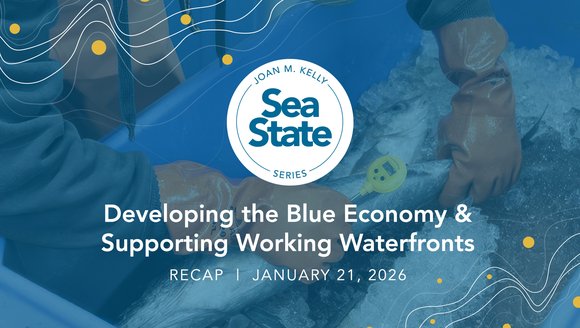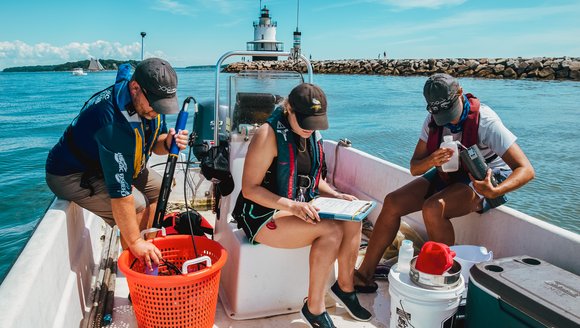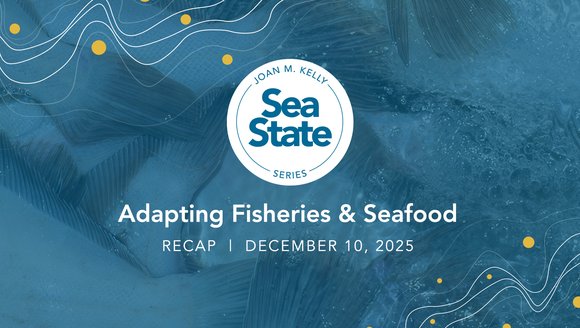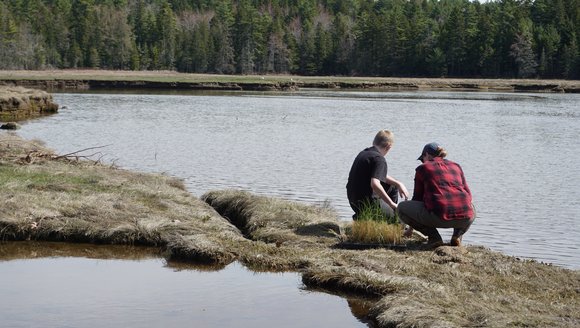Gulf of Maine, Explained: Ecosystem Modeling
Gulf of Maine, Explained | Jul 31, 2018
We all feel the changes technology has made in our daily lives. As interoffice memos have become emails, calls have become texts, and meetings have become video conferences — technology has transformed nearly every workplace in the country over the last 30 years.
Research labs are no exception, as modern computing has made significant changes to the way scientists study the ocean. Computers are now an indispensable tool for ocean scientists. Perhaps the best example of that kind of research is the production and use of ecosystem models.
As a result, we talk a lot about models, modeling, and modelers when we describe our work — and we’re often met with blank (but friendly!) stares. So, if you’ve ever wondered what an ecosystem model is, how it works, or why they’re so important, Dr. Kathy Mills is here to help.
Simply put, an ecosystem model is a mathematical representation of natural system. Models are built like puzzles, with different pieces representing different components of the ecosystem. Scientists then test hypotheses about the ecosystem by changing the pieces and comparing the virtual environment to the real world. In our lab, the data we use to build these models comes from a variety of sources, including sensors, satellites, and fishermen partners. Our scientists use models to understand changes in the natural world, and predict how those changes might affect ecosystems and their surrounding economies.
In this installment of Gulf of Maine, Explained, Dr. Mills talks about how she uses ecosystem models in her daily work. She and her colleagues use models to ask and answer questions — How fast is the Gulf of Maine warming, and why? What are the economic consequences of these changes?
Watch the video to learn more about how models work and how they contribute to our understanding of the Gulf of Maine.
Gulf of Maine, Explained
In our video series, The Gulf of Maine, Explained, you’ll learn more about important-but-unfamiliar concepts related to our work. We’ll cover commercial fishing, fisheries research, sustainable seafood, education, and more. While we probably won’t answer all your questions in one short video, we hope to spark your curiosity about complicated issues that are central to our mission.



